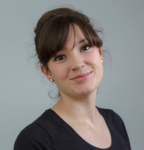Have a question?
Post-partum haemorrhage emergency kits study
Background
Post-partum haemorrhage (PPH) is a complication in labour where a woman experiences heavy bleeding after the birth of their baby. The incidence of PPH is rising in the UK, affecting more than one in 100 births. Delayed treatment of PPH significantly impacts the outcome.
To facilitate a rapid response, PPH emergency kits (PPH kits) should contain all necessary equipment and supplies together in a readily accessible kit. In the UK, these kits are often tailored to local contexts, resulting in variations in their content (e.g. medicine, equipment), form (e.g. a box, bag, trolley) and how items are packed and restocked. Standardising PPH kits can reduce complexity and ensure that maternity professionals can take prompt and straight forward actions.
This study aims to help us learn about the range of PPH kits in use, how they vary across different maternity settings in the UK, and how we might optimise the design of PPH kits so that all maternity professionals have the equipment they need during an emergency.
Approach
Using participatory methods, we will gather input from a wide range of maternity professionals from across the UK. The study will follow a user-centred design process to ensure that recommendations are based on users’ needs and priorities (e.g. specific tasks, requirements and professional experience). More information on our methods can be found here.
To date, we have visited a range of UK maternity units to observe how PPH kits are used in practice and how their use varies across different settings and scenarios. We are now focusing on the layout and contents of PPH kits. To do this, we will invite maternity professionals from a range of selected units across the UK to participate in a photo-based survey on Thiscovery. Participants will be asked to share photos and describe their PPH kits’ contents and design. This is the first large scale survey of its kind in the UK, providing detailed information about the layout and content of kits that written information cannot capture.
The study will aim to use these findings to inform a co-design process with maternity professionals, human factor engineering specialists and others, to develop best practice guidance on optimising PPH kits for different settings.
Funding and ethics
This study is funded by the Health Foundation’s grant to The Healthcare Improvement Studies Institute (THIS Institute). It is independently led by THIS Institute in collaboration with maternity professionals from the PROMPT Maternity Foundation. Activities for this study have been reviewed by the Health Research Authority (HRA) and the University of Cambridge Psychology Research Ethics Committee.







